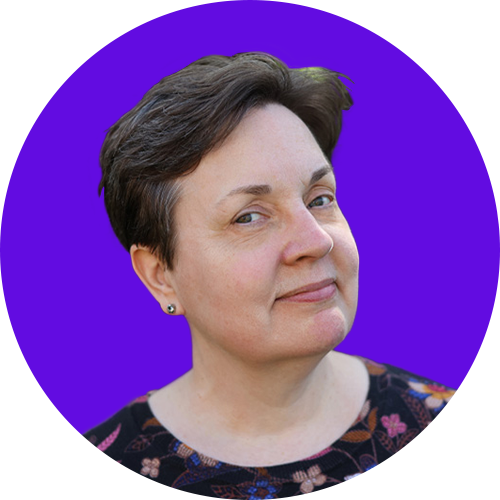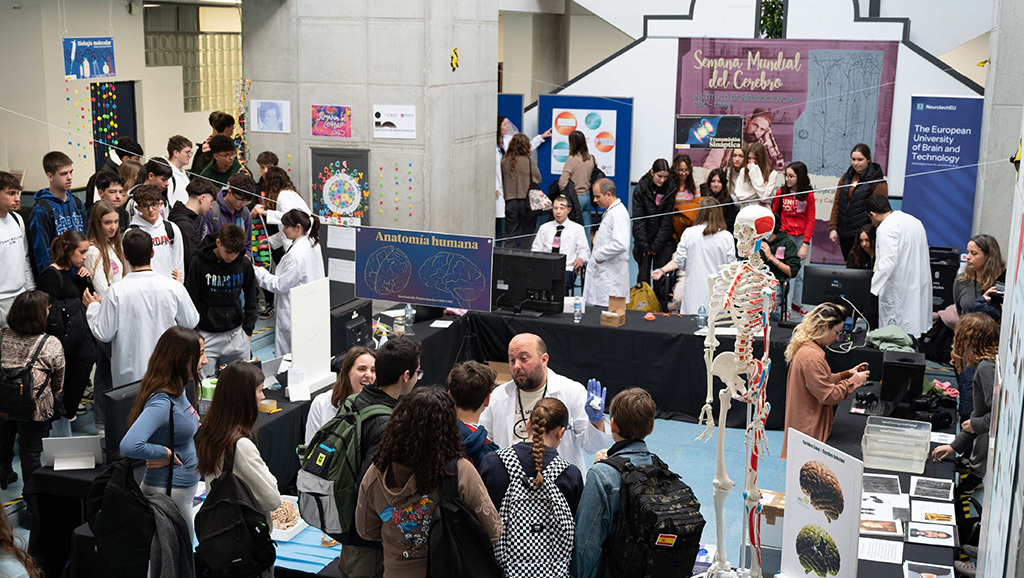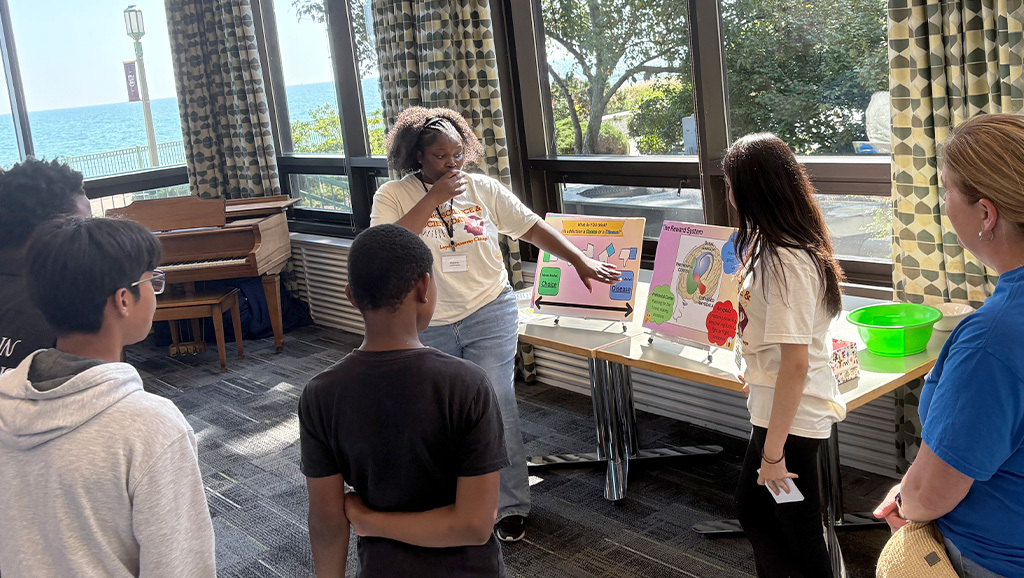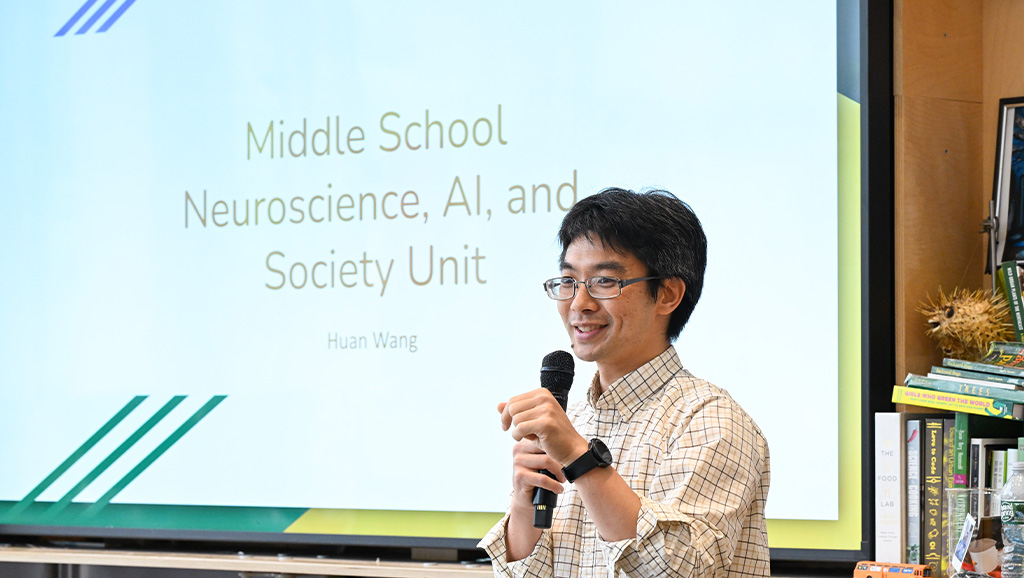Impact Story
Empowering Brains, Empowering Lives
How a Learning Network is Changing the Way Older Adults Understand Brain Health
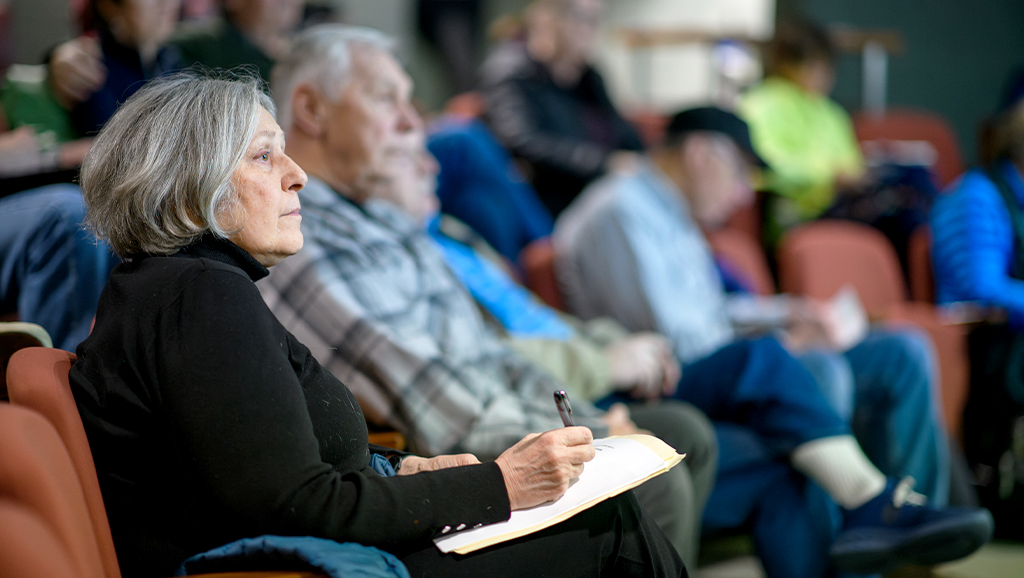
For hundreds of older adults in Washington State, the Brain Health Learning Network (BHLN) has been a lifeline to knowledge, empowerment, and connection. A year-long experiment in community-driven neuroscience education, the program brought academic expertise out of the lab and into retirement centers, community spaces, and living rooms through live-streamed lectures. While this season may have ended, for its participants, the effects are only just beginning.
“Sharing brain health knowledge, especially for an aging population, is critical,” said Eric Chudler, Ph.D., the project’s lead from the University of Washington. “And there’s a real need for this kind of outreach—people often don’t know as much about Alzheimer’s or how to parse misinformation as they could. Programs like this help bridge those gaps.”
Launched in 2023 with support from the Dana Foundation, the program included 13 expert-led public lectures and discussions on topics ranging from memory and sleep to Parkinson’s and nutrition.
Each lecture was carefully curated to address both common concerns and under-explored ideas in brain health, blending science, storytelling, and practical advice.
Listening First: Building the Blueprint Together
Natalie Lecher, director of the Osher Lifelong Learning Institute (OLLI) at the University of Washington, which partnered on the project, was all-in from the start.
But the BHLN wasn’t just about lectures. It was about connection. Importantly, its success stemmed from community input, meticulous design, and a commitment to accessibility.
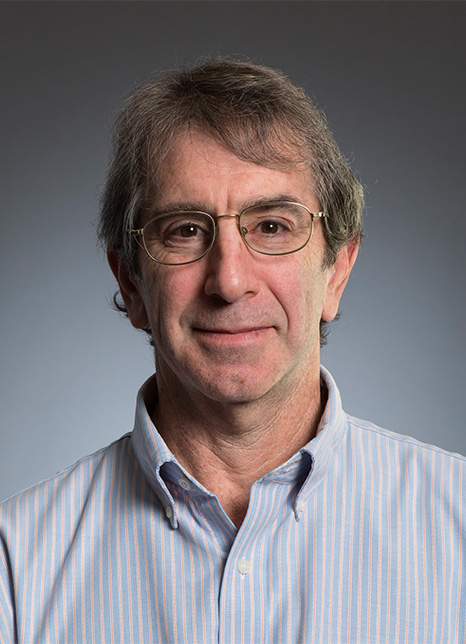

Eric Chudler, Ph.D.
“We knew this partnership would be a good fit because Eric brought access to world-class neuroscience researchers, while OLLI has long-standing relationships with older adult learners and community organizations across the state,” she said. “It was really a perfect match for this kind of program.”
For Chudler, Lecher, and their colleagues, any successful project would have to reflect the priorities of its audience. This was a new audience for Chudler, whose outreach has mainly been to children via his Neuroscience for Kids website and Brain Awareness Week activities, and teens via his award-winning series “BrainWorks.”
To pinpoint the issues older adults were most concerned about, the team started with five focus groups across the Puget Sound area. Participants—aged 50 and up—were asked open-ended questions, including : What do you want to know about your brain?
“Their input shaped everything,” said Chudler, who used a large language model (LLM) to analyze themes from the five focus groups. “The themes that came up over and over were memory loss, dementia, and Alzheimer’s disease. But misinformation—how do you know what’s true?—came through in every single focus group. People repeatedly mentioned that they didn’t trust advertisements, and some even admitted they didn’t trust doctors. It was huge.”
This input became the foundation of the program’s design, not just in its topics but in its diverse, innovative delivery methods. Lectures were held both in person and online, recorded for later viewing, and supplemented with additional resources, such as links to rigorous clinical trials and fact sheets from trusted organizations.
Engaging Learners: Taking Science to the People
The Brain Health Learning Network’s first goal was to make cutting-edge neuroscience accessible to its audience. But finding the right approach wasn’t without challenges.
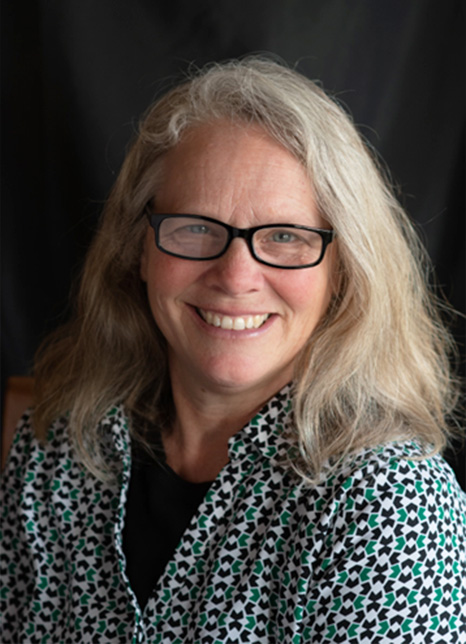

Natalie Lecher
“The science is obviously complex,” said Lecher. “Eric made a point of picking speakers who could really talk to people. Not every researcher is great at communicating in this setting. It’s different from talking to other academics in a lecture hall—people have diverse levels of understanding.”
“Not all scientists are good speakers,” Chudler said with a chuckle. “It’s all about finding people who are not only experts in their fields but who can also communicate clearly—and that combination isn’t always easy to find.”
From myth-busting lectures to practical tips on staying mentally and physically active, the speakers delivered courses designed to engage learners at every level. Chudler led the opening talk, an interactive primer on brain anatomy and function that set the stage for the talks and discussions to follow. And he tackled some of the most familiar misunderstandings.
“People loved Eric’s myth-busters session,” Lecher said. “They’d hear a fact—like no, we don’t just use only 10 percent of our brains—and go, ‘What? No way!’ They liked being challenged to rethink these things.”
Charlene Joy, who lives at Trilogy at Richmond Ridge in Redmond, attended the two lectures held at the Center for Well Being there and has watched the videos of all the others, agreed. “What this whole series does is flip these myths on their heads and give you science,” she said.
Other standout sessions included a lecture on discerning reliable science in media (“huge for people combating misinformation,” Chudler said) and a very popular session on brain health nutrition.
“People loved the diet one,” Lecher said. The presenter, Kelly Morrow, made it fun. She wasn’t like, ‘shame on you for eating pumpkin pie,’ you know. She gave practical advice, like roasting chickpeas, and other ideas that felt doable. People were inspired but didn’t feel judged.”
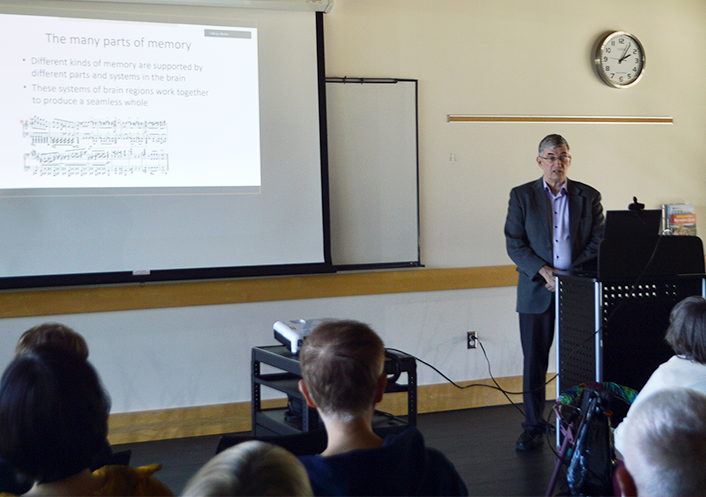

Thomas Grabowski, M.D., director of the UW Medicine Memory and Brain Wellness Center, lead a talk focusing on dementia and memory loss. Photo courtesy of University of Washington.
“We weren’t trying to turn people into neuroscientists,” Chudler said about the overall program. “It was about equipping them with information they could take to their healthcare providers—so they could ask better, more informed questions for themselves or for loved ones.”
Lives Changed: Personal Stories of Impact
Pre-and post-lecture data, collected through surveys of 297 participants across all the sessions, showed a meaningful increase in knowledge across nearly every session. The surveys were based solely on the content of the presentation each speaker planned.
Results showed that understanding of Alzheimer’s dementia leaped from 53% to 85% among the more than four dozen survey respondents. A talk on memory health increased scores from 56% to 63%. The nutrition lecture on brain-boosting foods such as flaxseed and salmon resonated with its audience—resulting in a remarkable 88% post-lecture comprehension. The final lecture, about Parkinson’s disease, went from a pre-lecture 77.8% to a post-lecture 93.5% in increased understanding.
Online, recordings of the 13 lectures have been viewed more than 3,100 times as of December 1. The introductory lecture alone has been viewed 1,200 times.
Numbers, however, only tell part of the story.
Lecher recalled moments of profound connection, often sparked by live Q&As at the events. At the session on Parkinson’s disease, someone eagerly approached her afterward.
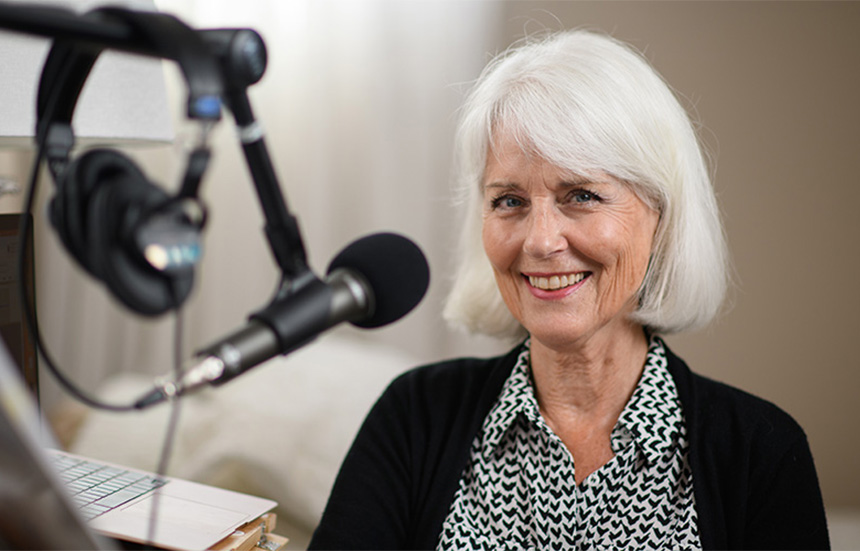

Charlene Joy
“I would highly encourage people to take in the whole series, or any one of these episodes, because it updates your information,” Joy said separately. “You never know when a friend of yours or a relative is going to face one of these issues. Whether it be diets or medicines or chronic pain, I found something in them all that I could apply to my life.”
Chudler also described audience reactions that moved him. “One of the most memorable moments for me came during the focus groups,” he said. “Several older adults told me, ‘We don’t believe what we hear, what we read, or even what our doctors tell us,'” Chudler said. “Some mentioned seeing brain supplement commercials and saying, ‘How do we know what to believe?’ It was clear that misinformation wasn’t just frustrating to them—it was a barrier to making informed decisions.”
That “misinformation” concern catalyzed a special session: a lecture by University of Washington professor Jevin West dedicated to evaluating the validity of scientific claims. West offered accessible tools and tips—how to verify a source, identify red flags in grandiose promises (like brain supplements), and question claims made in flashy drug ads. “It was a lesson everyone needed,” said Lecher.
The Ripple Effect: New Horizons for Brain Health Learning
Chudler, Lecher, and their collaborators say the BHLN offers a solid, portable model of how to reach an audience with information they need and want.
“Any group looking to replicate this doesn’t have to start from scratch,” Lecher said. “You could start by partnering with your local library, a senior center, universities, whoever is already working with older adults.” Most areas have some mix of universities, libraries, senior centers, or organizations that are already engaging this audience and can provide a launchpad.
At Osher, “we have established venues, existing mailing lists, and consistent audiences who know they can count on us to deliver high-quality, engaging programs,” Lecher said. “Partnering with groups like ours allows programs to plug directly into those networks without having to build from scratch.”
There are 120 other Osher programs across the US, Lecher said. “Imagine if every one of them partnered with local scientists to create similar brain health networks. Not just curated lectures, but communities of learners who engage with these ideas together.”
This pilot program was funded by a grant from the Dana Foundation, but you don’t need $100,000 to make a difference. “You just need community buy-in, a small team, and steady communication with your audience,” said Chudler. “If I were replicating this in a smaller town without major resources, I’d train local clinicians or educators to lead lectures and start with live Zoom events or in-person talks at libraries or places where older adults live and relax. It doesn’t have to involve a lot of tech to make an impact.”
And it doesn’t have to be sitting still. “For future programs, I’d love to make things more hands-on,” Chudler said. “What if a session on staying physically active included actual demonstrations? For example, if a community has a yoga studio, you encourage residents to start an active program based on what they’ve just learned. It’s about turning knowledge into action.”
Accessibility is a big issue for older learners, as well. A hybrid model is key, Lecher said. “In-person lectures have a magic to them, but Zoom offers flexibility for people in rural areas, or caregivers, or even those hesitant to attend in-person events because of mobility or health issues.”
The Brain Health Learning Network lives on. Every lecture is now online as a recorded resource for anyone—curious grandkids, caregivers, or fellow lifelong learners across the globe. There are links to supplemental information for each one the OLLI website, and on YouTube.
“It’s just so fulfilling to see,” Lecher said. “People were hungry for this kind of information. These are lifelong learners, and it reminded them again that you’re never too old to discover something new. That’s the beauty of it.”
